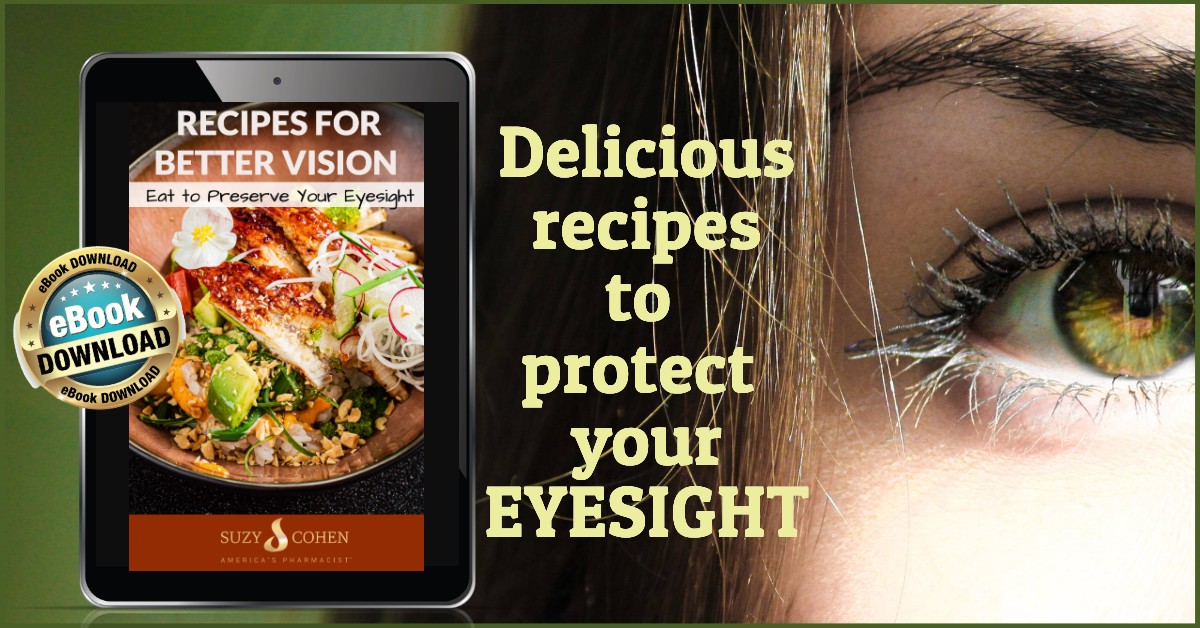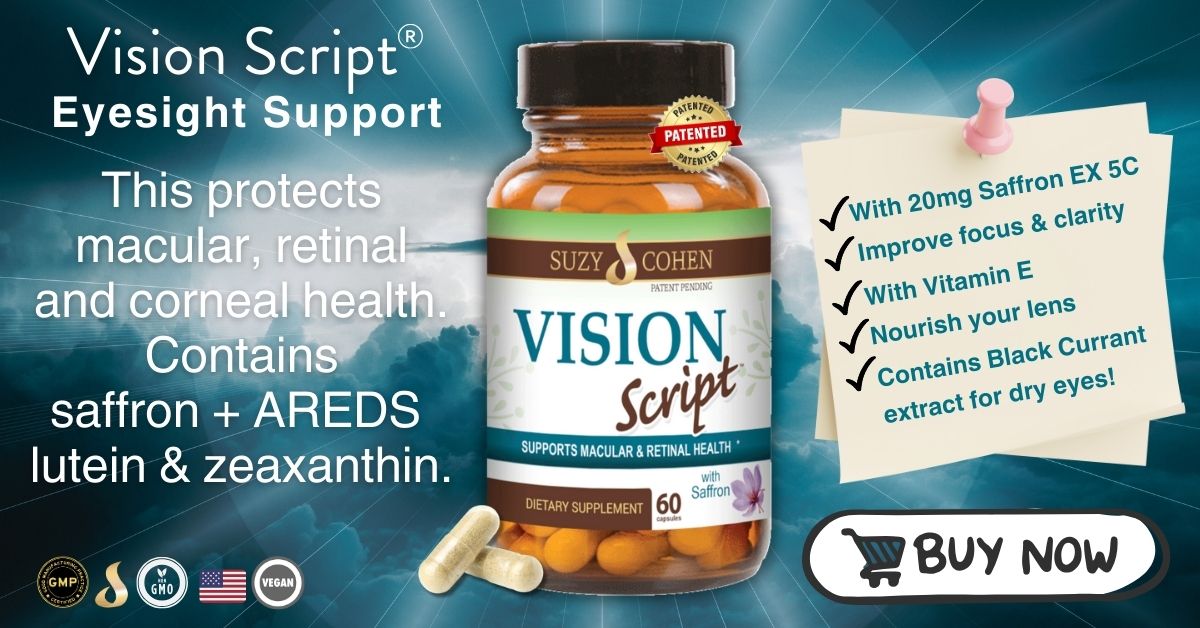Just imagine what it would be like to read with more clarity, and be able to focus better and see the leaves on the trees (and cute rabbits, or flower buds, or even birds in the sky) without squinting! How about reading your device without so much tearing up and discomfort! Itchy annoyed eyes? There is a way to fix that which is good news to about 30 million people who have some sort of eyesight concern.
Yes, it’s possible for many, if not most people. We live in a time where we can correct many eyesight problems with professional help. For people with problems like nearsightedness, farsightedness, and astigmatism, there are eyeglasses, contact lenses, LASIK and refractive surgery options. Today, I’d like to share some other options you can do, as well as the controllable lifestyle factors that help you protect your eyesight naturally.
In particular, you should focus on retinal and macular health, light and dark adaptation, eye fatigue and strain, and crispness of vision. Maintaining eye comfort and moisture is also important.
Here are some 7 valuable tips:
1. Eat foods rich in saffron.
Two different double-blind, placebo-controlled trials showed that specific saffron supplements could help over the period of 3 months. The areas of improvement were retinal sensitivity, color perception and visual contrast. Make sure you get the real deal, as many companies adulterate their saffron. Eating the spice daily could be helpful if the supplements are too expensive. You can add this spice to rice, soup and sauce recipes, and even marinades. Here’s a recipe for Saffron Rosemary Rice you can make. Also, I wrote a blog specific to saffron that you might be interested in, 3 Ways Saffron Helps Your Eyes.
2. Consume more fresh spices.
You’ve heard of carotenoids being good for the eyes. Carotenoids are natural dyes that impart orange color to fruits and vegetables. Two potent ones are lutein and zeaxanthin. It makes sense to support the tissues of your eye with antioxidant nutrients that sweep away poisonous, dirty free radicals before they harm the structure of your eyes. Lutein is one that has been studied for years and found to be helpful. Other eye-loving antioxidants include vitamin A and C, zinc and quercetin. Foods rich in lutein include fresh spices like basil and parsley. Other foods include leek, spinach, red peppers and kale.
3. Minimize or eliminate smoking.
Smoking damages the eyes and lungs. It raises a person’s risk for blindness through a lot of free radical damage and unchecked pro-inflammatory cytokines. This can lead to macular degeneration and cataracts. If you’re smoking a pack a day, and you cut that in half then even that would help. Ideally, you could stop smoking altogether. Smokers need additional Vitamin C because nicotine is a drug mugger of C.
4. Control blood sugar.
Having hyperglycemia is a known risk factor for many eye problems including a condition where high blood sugar (which acts as an acid wash) causes damage to the capillaries of the light-sensors in the back of the eye (the retina). It’s called diabetic retinopathy. Hyperglycemia also contributes to glaucoma. Many people don’t know they even have glaucoma so this is a good time to mention that along with blurry vision, one can also see halos around lights and frequently get headaches. Managing blood sugar through diet, exercise and herbal supplements are ideal in my opinion, however, if that doesn’t work, you can try medications. Whatever you do, just know that controlling blood sugar in Type 2 diabetes is within your control to some degree, and the payoff is your vision. If you need help with this, I wrote a book with a 4.6⭐ rating on Amazon entitled, Diabetes Without Drugs: The 5-Step Program to Control Blood Sugar Naturally and Prevent Diabetes Complications
5. Try tinted plastic reading sheets.
There are many brands of this available online and the most useful colors are orange, yellow, blue, and red. The sheets are placed on top of any reading literature (magazine, newspaper, novel, journal, etc), and they reduce the harshness of bright paper. They may help with conditions that affect reading such as dyslexia, color blindness and/or some people with autism-related reading issues.
6. Use blue light blocking glasses.
A study conducted in 2017 (University of Houston) suggests that using these glasses increases melatonin levels, by up to 58% which means it may improve sleep. If you are trying to reduce eye fatigue and protect your eyes, invest in an anti-glare screen for your desktop or laptop computer too.
7. Invest in good eye vitamins.
Shamefully, the ingredients known to help are put into the commercial brands that don’t bother to either enteric coat or encapsulate the ingredients in acid-resistant capsules. If it doesn’t make it to your intestines because it degraded in your stomach acid, it’s not doing you any good. So check your brand and/or upgrade it. If you don’t, then it’s like that saying, you’re “just making expensive urine.”
As for medications to treat eye conditions, those are always an excellent choice so remain on whatever your ophthalmologist has prescribed. For that matter, there are many good moisturizing eye drops available today too, and you can take those to help temporarily relieve dryness. It’s critical however to nourish the inside tissues of your eyes, and the only way to do that is to feel the internal tissues of your body with healthy nutrient-dense foods, while simultaneously reducing exposure to harmful pro-oxidants. If we take good care of our macula, cornea, and retina now, we’ll have them for a lifetime.

Suzy Cohen, has been a licensed pharmacist for over 30 years and believes the best approach to chronic illness is a combination of natural medicine and conventional. She founded her own dietary supplement company specializing in custom-formulas, some of which have patents. With a special focus on functional medicine, thyroid health and drug nutrient depletion, Suzy is the author of several related books including Thyroid Healthy, Drug Muggers, Diabetes Without Drugs, and a nationally syndicated column.



